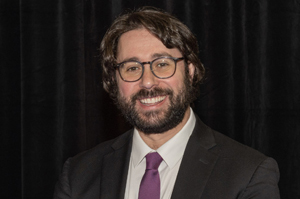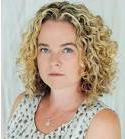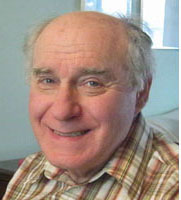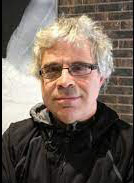Opinion
Is there more to 2 stories than we’ve been told?

By BERNIE BELLAN Two ongoing stories have certainly led to a fair bit of conjecture within Winnipeg’s Jewish community as to whether there’s more to both stories than we’ve been told. The first has to do with Rabbi Matthew Leibl’s leaving his position as one of the two rabbis at the Shaarey Zedek.
Like most of you who have been following this story with rapt interest, what’s happened since the Shaarey Zedek made the surprise announcement that Rabbi Matthew will not be returning as rabbi for Winnipeg’s largest and oldest congregation has been a great deal of speculation as to whether there may be more to this story than the ostensible reason we’ve been given.
Now, while I may be a nosy “quasi-journalist” – as I like to style myself, so far I haven’t heard anything that would definitely contradict the explanation that Rabbi Matthew’s contract – which ended June 30 – after only three and a half years, is not being renewed.
I watched his farewell address on June 25, as I’m sure so did many others, in the hope that we might be given a sliver more information as to why a young, dynamic rabbi who has only been in his position since November 2018, would now choose to leave that position.
On the face of it, I suppose we should accept Rabbi Matthew’s explanation that he wants to spend more time with his two young children, but let’s be honest: Shaarey Zedek congregation’s relationship with its rabbis over the years has not always been a pleasant one.
It wasn’t that long ago (2012) that Rabbi Larry Pinsker’s controversial departure from that congregation also led to widespread speculation as to the reason or reasons that underlay that move.
It would be inappropriate to engage in any sort of rumor mongering here by repeating some of the rumors that I’ve heard as to why a charismatic and popular young rabbi would be leaving his position so early into his career, but I did find it interesting to learn, in watching Rabbi Matthew’s farewell address, that he is still going to remain a rabbi – and will be available to officiate at weddings, for instance. (I presume he’d also be available to perform funeral services and serve as a rabbi at bar or bat mitzvahs that are held outside a synagogue.)
One wonders what might happen in a few years’ time when both Rabbi Matthew’s children will be enrolled in school full time. Surely someone as gifted as Rabbi Matthew still has an enormous contribution to make to any community of which he’s a part – whether that’s in Winnipeg or somewhere else.

The other story that’s caught my attention was a blog entry on June 15 on the Times of Israel website by Catherine Chatterley, Director of the Canadian Institute for the Study of Antisemitism.
I hadn’t been aware of Chatterley’s post until I received a phone call from someone whom I know well – and who’s involved with a prominent pro-Israel organization here, who asked me whether he could write a letter to the editor in response to what Chatterley had written. I said to him that I found it a little strange that someone would want to write a letter to the editor about something that appeared in an entirely different publication (in this case an online one), so I demurred from accepting what he might want to write.
Then I received yet another call from someone who’s also very involved with another organization here asking the same thing. What, I wondered, could Chatterley have written that would lead two different individuals wanting to write letters to this paper about something that was never published in our own paper?
Subsequently, I read Chatterley’s blog. I could see that what she wrote might raise hackles among more right wing elements within both our Jewish community and the non-Jewish community, but with all due respect to those individuals who found Chatterley’s comments so provocative, I thought that what she wrote was well reasoned and hardly the sort of piece that would engender strong criticism.
Here though is an excerpt of what she wrote that I suppose might be construed as somewhat controversial:
“Over the last month, I watched many Jews on Facebook expressing bewilderment at the deafening silence of their non-Jewish contacts and read op-eds by the heads of Canadian Jewish organizations echoing a similar concern and literally begging Canadians to ‘start caring about antisemitism.’ The reason for this silence is that some people are not interested, first and foremost, they do not care about the foreign region of the Middle East and they are trying to survive economically and psychologically in the midst of an insane never-ending pandemic. Secondly, however, most non-Jews do not see antisemitism as the root cause of Palestinian rage, even if it flares up as a side effect of that rage. Instead, they see the imbalanced and unjust conditions in the Middle East; they see a strong Israel armed to the teeth with American weapons, both offensive and defensive, not a vulnerable people surrounded by enemies; they see the Palestinian people living under Israeli military occupation in the West Bank with its daily restrictions and humiliations, and under the rule of Hamas in Gaza with no democratic elections in sight and no new honest effective leaders on the horizon. They see hopelessness and frustration that explodes under the pressure of hot war, especially among young people with dim hopes for the future. This is not to justify any violence, as all violence is unjustifiable, it is simply to understand the dynamics of these endless cycles of conflict and how many people perceive them outside the Jewish community…
“For the foreseeable future, however, it is diaspora Jewry that will be held hostage by this seemingly irreconcilable conflict 10,000 km away. And given the political and cultural trajectory before us, I believe these hostages will be targeted with increasing rage and antisemitism in Canada and the United States, especially in relation to violent developments in the Middle East. Diaspora Jews, including their children, may also face growing exclusion in coming years if things continue to deteriorate politically, be it stated obviously or performed more covertly.”
I’m not sure that I buy the argument that the rise in antisemitism that we’ve been witnessing of late is directly a result of Israel’s behaviour toward Palestinians. For many of the individuals that have been engaging in incendiary antisemitic rhetoric, they don’t need much of an excuse to hate Jews. I’m also not sure to what extent many of these same individuals also give a damn about Palestinians – or how much they know about the Israel-Palestine conflict. As to others in the non-Jewish community who may be more sympathetic to the Palestinian cause because of the perceived imbalance between Israel and Palestinians, to say that “diaspora Jewry will be held hostage by this seemingly irreconcilable conflict… targeted with increasing rage and antisemitism in Canada and the United States” seems a bit of an overstatement.
Yes, in certain instances, such as what’s been going on at some university campuses for years, i.e., unsafe environments in which to display pro-Israel sentiments, the Middle East conflict has boiled over into overt hatred for Israel, but to say that “diaspora Jewry will be held hostage” and we may face “growing exclusion in coming years if things continue to deteriorate politically” is describing a worst case scenario.
What I found most surprising about Chatterley’s article, however, is that, until now she has received strong support from right wing Jews. One wonders to what extent some of those supporters will be sufficiently angry that she has attempted to tie antisemitism to Israel’s behaviour toward Palestinians that they will want to drop their support for her.
And, judging by the two calls I received from individuals asking that they be allowed to respond to Chatterley’s article – and they were both from representatives of what I would consider to be right wing organizations, I would suggest that she has now stepped into quite a bit of a quagmire. I give her full marks for being courageous though; she must have known beforehand that what she was writing would be considered offensive to many of her supporters.
Local News
Is It Alberta’s Turn to Regulate Online Gambling? Looking at the Possibilities

Online gambling and betting in Canada is booming, with each province allowed to regulate its own space. Ontario, Canada’s most populated province, turned two this year after leading the way in April 2022. In what should motivate Alberta and other provinces, Ontario is already reaping the rewards, generating $100 million annually in gambling revenue. Will the local administration in Alberta do what is needed?
Talks have been rife that Alberta is considering going the Ontario way by having an open-licensing system. In July 2023, the minister for Service Alberta and Red Tape Reduction, Dale Nally, issued a mandate to make this province a hub of online sports betting and gambling.
Alberta Premier Danielle Smith recently asked Nally to cooperate with indigenous partners and other stakeholders to develop an online gaming strategy. The main focus will be on revenue generation and responsible gambling. In light of this, Nally said Alberta’s primary focus is becoming a “leading hub for iGaming” with streamlined regulations and low corporate taxes. Such conditions should position Alberta to become a leading iGaming destination.
A few weeks ago, the minister attended the ICE international gaming conference held in London. Together with Ontario’s Attorney General, Doug Downey, and other stakeholders, Nally participated in a roundtable discussion regarding the status of iGaming in Canada. CDC Gaming Reports also revealed that the discussion highlighted the success of iGaming in Ontario and how Alberta can emulate this success story.
Looking into the Alberta Budget 2024, it’s evident that state monopoly could soon give way to Canadian casinos to thrive in the province. Alberta took the first baby steps towards a more liberal gambling sector after setting aside $1 million for gambling. This budget will support the looming review of the Gaming, Liquor, and Cannabis Act and supporting Regulation. The idea is to review the entire regulatory framework to find more funding ways for Alberta charities and community projects.
Major operators like BetMGM, PointsBet, and PokerStars have since hired lobbyists to ensure commercial operators become a reality in Alberta. Speaking to investors and industry analysts in March this year, PointsBet CEO Sam Swanell tipped Alberta and British Columbia to legalize online betting soon. He noted that this could provide the much-needed expansion of that TAM.
Alberta is yet to take full advantage of online gambling despite being the country’s fourth-largest province, with around 4.3 million people. Smaller markets in North America, such as West Virginia and Connecticut, are already benefiting from commercialized online gambling. The good news is that noises about legal online gambling are getting louder in Alberta. It’s just a matter of when the government will make the announcement.
What Next for Online Gambling and Betting in Alberta?
Including a $1 million gambling review budget is definitely a step in the right direction. However, there’s still much to do to end Alberta’s long-standing gambling status quo. But at least the budget opens the door for further discussions and reforms regarding iGaming in Alberta. That discussion has been underway, although the momentum has increased in the last year or so.
As it stands, PlayAlberta.ca is the only regulated online gaming platform in Alberta. It’s a government-run website operated by the AGLC (Alberta Gaming Liquor and Cannabis). Besides casino games, this website provides sports betting and lottery-style gaming experiences. The legal sign-up age on PlayAlberta.ca is 18 years.
For Albertans who prefer more gambling freedom, the government doesn’t restrict anyone from joining offshore operators. Most gaming sites operating in Alberta are licensed in Curacao, the UK, and Malta. Compared to PlayAlberta.ca, these websites provide a more extensive variety of games, rewards, and general experience.
In conclusion, it’s just a matter of when Alberta will introduce an open-licensing market. This approach has proved to be a success elsewhere, especially in Ontario. A recent Ipsos report in Ontario revealed that only 13.6% of the residents prefer to gamble on offshore websites. Alberta could soon follow this path, although there’s much work to do to realize this dream.
Opinion
Hamas savages make no distinction between Israeli Jews, Arabs

By MYRON LOVE I remember many years ago attending a presentation by Simon Wiesenthal, the world’s leading Nazi hunter, during which he made the point that the focus of Holocaust education should not be on the number six million – the number of estimated Jews who were murdered – but rather on the 12 million martyrs – including other targeted groups such as the Roma, people who were gay, the mentally and physically handicapped and the many great many Slavic people who were also murdered. After the Jews, the Slavs were next on the list.
By focusing strictly on Germans killing Jews, he observed, it became too easy to make it out to be only Germans versus Jews – thereby making it easier for Holocaust deniers and absolving the other European peoples who were complicit in the killings.
Similarly, while we naturally mourn our Jewish brethren who were so horribly slaughtered on October 7, we need to also bear in mind that Hamas made no distinction in its murderous rampage between Israeli Jews and Israeli Arabs or between Israelis and foreign workers.
In a posting for The Gatestone Institute on November 30, Israeli-Arab journalist Khaled Abu Toameh noted that he Hamas terrorists who attacked Israel on October 7 did not slaughter Jews alone. The terrorists also murdered and kidnapped scores of Muslim citizens of Israel, including members of the Bedouin community. The terrorists’ murder spree made zero distinction between young and old, Muslim and Jew.
“Scores of Arab Israelis were wounded, murdered or taken prisoner,” he reported.
One such brave individual was 23-year-old Awad Darawshe, an Arab-Israeli paramedic who was on duty at the music festival near Kibbutz Re’im, which was among the first locations under attack. When the medical staff on site were ordered to flee, he insisted on remaining behind to treat the wounded.
Abu Toameh suggests that the paramedic thought that because he was Arab, he could reason with the killers. He was murdered nonetheless.
Another courageous Arab-Israeli that the writer noted, 50-year-old Abed al-Rahman Alnasasrah, was murdered by Hamas terrorists when he attempted to rescue people from the music festival. He was married and a father of six children.
Fatima Altallaqat, 35, from the Bedouin village near Ofakim, was murdered while working with her husband near the city of Ofakim in southern Israel. She was a mother of nine children, the eldest nine years old.
Abu Toameh quotes her husband as saying: “We’re a religious Muslim family and she wore the traditional headdress of a devout woman. It is inconceivable they [Hamas terrorists] could not see who was inside [the car]. They were five meters away from her as they passed.”
Forty bullets were fired into her.
Abu Toameh further cites the comments of Suleiman Zayadneh, brother and uncle, respectively, to four of the Arab-Israeli hostages, who describes himself “as proud to be a Palestinian and Muslim”.
‘The people who came to shoot and kill — they know nothing of religion,” the writer quoted Zayadneh as saying. “These [Hamas] people came and killed left and right.”
Abu Toameh went on to reference the words of Nuseir Yassin, a video blogger with 65 million followers. Two days after the massacre, he wrote: “I realized that… to a terrorist invading Israel, all citizens are targets. More than 40 of them [the murdered] are Arabs. Killed by other Arabs. And I do not want to live under a Palestinian government. Which means I only have one home, even if I’m not Jewish: Israel…. So from today forward, I view myself as… Israeli first. Palestinian second. Sometimes it takes a shock like this to see so clearly.”
Abu Toameh reported that “there have been many storie about reciprocal inter-communal generosity and heroism in the aftermath of this national tragedy, and they create hope for the future”.
He quoted a statement by the Darwashe Family:
“We are very proud of Awad’s actions… This is what we would expect from him and what we expect from everyone in our family — to be human, to stay human and to die human.”
Abu Toameh also quoted Ali Alziadna, four of whose family members were kidnapped, as saying that he was “touched by the outpouring of support” by other Israelis.
“People from all over the country have come to hug and support our family,” Alziadna said. “The entire nation is one family now.”
Abu Toameh pointed out that many Arab citizens of Israel serve as IDF officers and policemen, risking their lives for their fellow Israelis. Many are serving at the front lines, saving lives.
Undoubtedly, Abu Toameh suggested, one of the objectives of the Hamas massacre, in addition to slaughtering as many Israelis as possible, was to thwart normalization between Israel and Arab countries, especially Saudi Arabia. Hamas may also have aimed to damage relations between Jews and Arabs inside Israel.
”The terror group was, without doubt, hoping that we would witness another cycle of violence between Jews and Arabs inside Israel, similar to that which erupted in May 2021,’ Abu Toameh posited. “Then, Hamas succeeded in inciting a large number of Arab citizens of Israel to take to the streets and attack their Jewish neighbors and Israeli police officers.
“This time, however, the Arab-Israelis have not heeded the calls by Hamas. One reason is that Arab-Israelis saw, with their own eyes, how Hamas terrorists make no distinction between Jews and Muslims.
“Hamas has repeatedly demonstrated that it cares nothing for the well-being of Arabs and Muslims. From their luxury homes and hotel rooms in the safety of Qatar and Turkey, Hamas leaders give the orders to attack Israel and then sit back and let the world weep over the destruction they wrought upon their own people.
“On October 7,” Abu Toameh concluded, “Hamas metaphorically shot itself in the foot by showing the world, with unfathomably ghoulish pride, by way of Go-Pro cameras and other self-documentation, that it has neither a religious nor a secular-humanist set of values. Perhaps the Palestinians in the Gaza Strip should look at the Arab citizens of Israel and note how they enjoy equal rights, democracy, freedom of speech and a free media. If Palestinians wish to live well, like the Arab-Israelis, this is the time for them to get rid of Hamas and all the terror leaders who, for seven decades, have brought them nothing but one disaster after another.”
It is too bad that so many gullible fools in our Western societies refuse to open their eyes to the truth.
Opinion
An Arab Trusteeship Council for Gaza

By Prof. BRYAN SCHWARTZ Oct. 17, 2023 (Originally posted to The Times of Israel)
1 No peace is possible with Hamas. It is genocidally antisemitic. This position is foundational, not rhetorical or mutable. Waiting for the emergence of a “pragmatic” version of Hamas is suicidally naïve.
2 Peace and cooperation are possible with most of Israel’s non-Iranian neighbours. They are militarily threatened by Iran, not Israel. For many in those countries, Iran’s version of Islam might be more problematic from the religious perspective than Israel’s Jewishness.
3 Hamas’ attack was partly to prevent a Saudi deal and a long-term economic cooperation
4 Israel has no territorial claim to Gaza and no material, religious, or ideological interest in running it.
5 Israel has vital moral and material interests in the emergence of a peaceful, demilitarized, and prosperous Gaza. If that can occur in the medium term, a long-term reconciliation of the Palestinians with Israel is achievable.
6 As and when Hamas is evicted from power, Gaza will need some new form of government.
7 The Palestinian authority probably cannot be trusted to take over Gaza. It is corrupt and lacked- and probably still lacks- credibility with a majority of the population in Gaza.
8 There used to be a concept called trusteeship in international law, whereby foreign powers would govern a territory in its best interests until its final status is clarified at the wishes of its own people.
9 The United Nations cannot be trusted to administer Gaza – any more than it has shown to be trustworthy to maintain strategic security in Southern Lebanon or to operate UNWRA in a manner that is effective for Palestinians and not hostile to Israel.
10 Consider this alternative. After Hamas is evicted from power, there is an interim period- say five to seven to ten years -of governance over Gaza by an Arab trusteeship council. The Council members are appointed primarily by Arab states sympathetic to Israel and eager to see the people of Gaza thrive. This Council could include local Gaza representatives and a representative of the Palestinian Authority but the majority would be representative of states like Egypt, Morocco, Jordan, and Saudi Arabia.
11 The trusteeship agreement would be formal, agreed to by Israel, and unequivocally state its objectives, including:
-demilitarizing Gaza;
-defining the sole purposes for which outside reconstruction and development money can be spent and requiring strict accounting
-ensuring that the education system in Gaza is not contaminated by antisemitic hatred;
-promoting sound administration of Gaza, including providing for transparent and non-corrupt government, with significant safeguards for human rights, and conformity to the rule of law;
-promoting the development of a real economy for Gaza, not one fuelled primarily by international subsidies.
13 No state could participate in the Council without having a peace agreement with Israel.
14 In fact, the creation of the Council and Saudi participation in it could be part of a peace deal with Saudi Arabia. The deal could involve a reconstruction package from the Saudis for Gaza, which would help secure the support of the people of Gaza for the Council arrangement as an interim measure.
15 Policing would be carried out by a force composed of Palestinians and members of the police forces of Trusteeship states, under the direction of the Council.
16 The net effect would be to remove Gaza from Iran’s influence and establish temporary control by a consortium of mostly Sunni states. The latter would be chosen from among those that are at least reasonably friendly to Israel and genuinely committed to good governance in Gaza.
17 The definitive solution to the Arab-Israeli conflict can only be achieved in a series of steps. Compromises are even more painful if they are framed as permanent. But if practical peace, stability, and some prosperity can be achieved in the medium term in Gaza and the West Bank, an amicable and enduring resolution should be achievable with the Palestinians.
18 While Israel is under severe military menace right now, it is not too early to think about how a positive political outcome can be achieved after the necessary and painful battle is concluded.
19 The current catastrophe is a so-far successful attempt by the regime in Teheran to disrupt peace negotiations involving Israel, the United States, and Saudi Arabia. Political vision along with military force might enable Israel to turn around the situation and complete and consolidate a lasting peace with almost all of its Arab neighbours and to set the stage for a formal and enduring peace with the Palestinians. The Teheran regime would be isolated, diminished in prestige, and more likely to be replaced from within.
About the Author
Bryan’s Jewish-themed musical “Consoulation: A Musical Mediation” premiered in the Spring of of 2018; https://consoulation.com His new album will appear in the coming months. Bryan Schwartz graduated with a doctorate in law from Yale School and holds an endowed chair at the University of Manitoba Law School. He is the author or editor of over thirty books and collections of essays. Bryan also created and helps to deliver an annual summer program at Hebrew University in Israeli law and society. He has served as a visiting Professor at both HU and Reichman university. . As a practising lawyer, Bryan has argued a number of cases at the Supreme Court of Canada, advised governments, and served as an arbitrator at the provincial, national and international level.


You must be logged in to post a comment Login